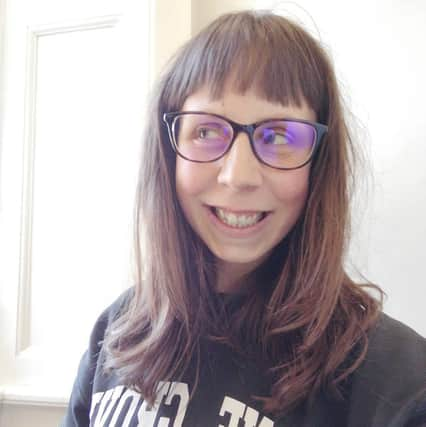New Scottish guideline offers hope for a life beyond an eating disorder


The thing about eating disorders is that they are not about food or eating or weight. Eating disorders are essentially, about managing unbearable feelings. It took years of prolonged hospital admissions before I was able to access therapy that helped me to understand this and find other ways to manage how I felt.
I now volunteer for Beat, the UK’s leading eating disorder charity, and I’ve helped create a new guideline for Scotland for the diagnosis and treatment of eating disorders alongside Healthcare Improvement Scotland. My story is not unique: I hear time and time again that access to appropriate treatment is delayed because eating disorders are so misunderstood. Professionals focus too much on the symptoms, how much someone is eating or what they weigh. A further barrier is the focus on symptoms and physical health. Once they reach a certain weight, they are considered ‘recovered’ and support is taken away at a time when it is most needed. This is the hardest stage of recovery. All the coping strategies have been taken away but mentally things can feel very much unchanged. It is acknowledged that weight is only one measure of health in eating disorder treatment, and yet it is too often conflated with recovery, because it is easy to measure. So terms like recovery and relapse lose meaning because recovery means ‘weight restored’ and relapse means ‘weight loss after treatment’. There is too little emphasis on the psychological change which is needed by the time people finish treatment. Moreover, there is no agreed upon definition of recovery. We need more research and more conversations with patients. I had been in treatment for over 10 years before a psychiatrist asked me what I wanted out of my treatment. Maybe recovery would not be so hard to define if patients were engaged more collaboratively with their care.
Advertisement
Hide AdAdvertisement
Hide AdMy own time in treatment was often fraught because healthcare staff expressed frustration with me, and I felt blamed and isolated. Actually I was not at all ‘treatment resistant’, as they described it – I just needed different treatment. Blaming patients for ineffective treatment must stop. Not everyone responds to treatment in the same way. In the guideline we’ve made a deliberate decision to avoid using phrases like ‘treatment resistant’ or language that blames patients. My hope is that this will bring about much-needed change in practice and patient experience. When I think about the patients I have met I think of people who are determined, thoughtful, selfless and caring. Yet they all have stories of healthcare professionals labelling them as selfish, manipulative and controlling. These are people who almost always want to get better and yet feel paralysed to a point where the fear of change outweighs the fear of staying the same. I began to get well when I was more afraid of staying the same than I was of making changes.
What the evidence shows is that it doesn't matter how long someone has been unwell, change is possible and there is hope of life beyond an eating disorder.
The new guideline can be read at www.sign.ac.uk
Ellen Maloney is an Ambassador for Beat, the UK’s leading eating disorder charity
Comments
Want to join the conversation? Please or to comment on this article.